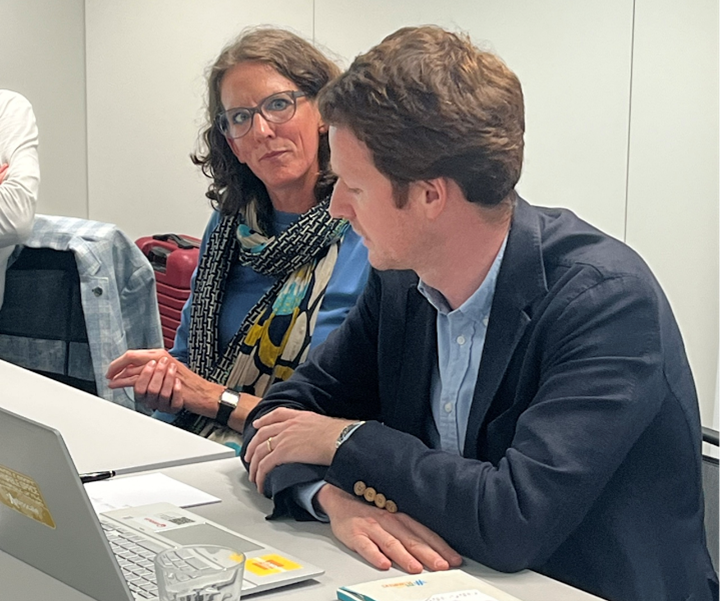
UDiTE EXECUTIVE COMMITTEE MEETS EUROPEAN COMMISSION TO DISCUSS EU GENDER EQUALITY STRATEGY 2020-25
The UDiTE Executive committee met in Brussels on 13th October was joined by an external speaker from the European Commission to discuss the EU Gender Equality Strategy 2020-2025. Kaja Lenzing underlined the strategy’s three main pillars – an EU that is ‘free from violence and stereotypes, that can ‘thrive in a gender-equal economy’ and one that allows ‘balanced leadership throughout our societies’. All of these pillars are monitored annually through a dedicated monitoring portal. Under the first pillar Kaja underlined that 33% of women in the EU suffer from physical and/or sexual violence. To combat this the EU is working with the Member States to put in place a series of key actions including legislative and communication campaigns and the launch of an EU network for the prevention of gender-based violence in November 2023 as part of the EU’s commitment as a signatory to the Council of Europe Istanbul Convention that entered into force on 01/10/23. Turning to the second pillar and economic aspects of gender equality in the workplace, Kaja underlined that women on average in the EU earn 13% less than men, with only 67% of women in paid employment compared to 78% of men, resulting often in women achieving 29% less pension than men. Women account for 75% of unpaid care and household work. As a result the European Union’s Policy objectives include ‘Closing gender gaps in the labour market (employment, pay, pension, care)’ and ‘Achieving equal participation across different sectors of the economy. To deliver on these objectives that Commission has put in place series of actions including ‘binding measures on pay transparency adopted 05/2023, 2019 Work-Life-Balance Directive (that came into force in August 2022 and the European Care Strategy - childcare and long term care that was adopted in September 2022. The EU’s 3rd and final policy objective of the strategy is about ‘Achieving gender balance in decision-making and politics’ Only 30% of board chairs and 8,5% of CEOs are women and 29% of members of the national parliaments are women. Actions include a ‘Directive on improving gender balance on corporate boards adopted in October 2022 and Promoting women’s participation in European Parliament elections 2024. Finally, Kaja looked at how local authorities can contribute to the mainstreaming of gender equalities in their communities.
In relation to pillar 1, local authorities are important stakeholders in helping to free our societies locally from violence with many local authorities providing vital services to tackle Genjder Based Violence. In the longer-term best practices in gender-responsive urban planning and zero tolerance policy against sexual harassment in the work place are key. Through quality childcare & after-school care services local authorities are playing a vital role tackling gender stereotypes in education. Finally, local authorities can demonstrate leadership in their local communities by promoting gender-balance and parity in management. Local authorities also can play a vital role on running initiative to encourage girls to take an interest in local politics.
Denis Bonvilain, VEOLIA’s EU office joined Kaja in the session describing the Velioa approach to Gender mainstreaming throughout the group. He described the key impact of Estelle Brachlianoff, who was appointed Chief Executive Officer of Veolia, succeeding Antoine Frérot on the 1st July 2022 making Brachlianoff only the third female at the helm of a Paris CAC 40 company, following Engie's Catherine MacGregor, and Christel Heydemann of Orange S.A..
Denis went onto to describe the group’s social commitments that include promoting professional equality, diversity and inclusion, and combating all forms of discrimination. Gender diversity, employment and inclusion of people with disabilities, equal opportunities. Veolia monitors this through an annual index and with its global reach seeks to ensure fair pay for delivering its services throughout the world through its initiative WE DO
Read more about the VEOLIA’s approach
Kaja invited UDiTE members to take a look at the latest Annual report on gender equality in the EU that gives a detailed description of State of play on gender equality in the EU and its Member States and sets out the latest EU actions, examples from MS and EU funded projects.